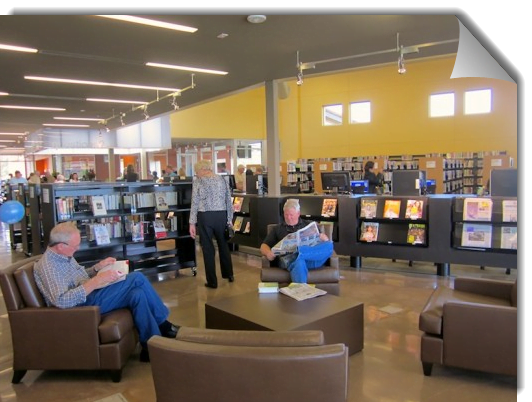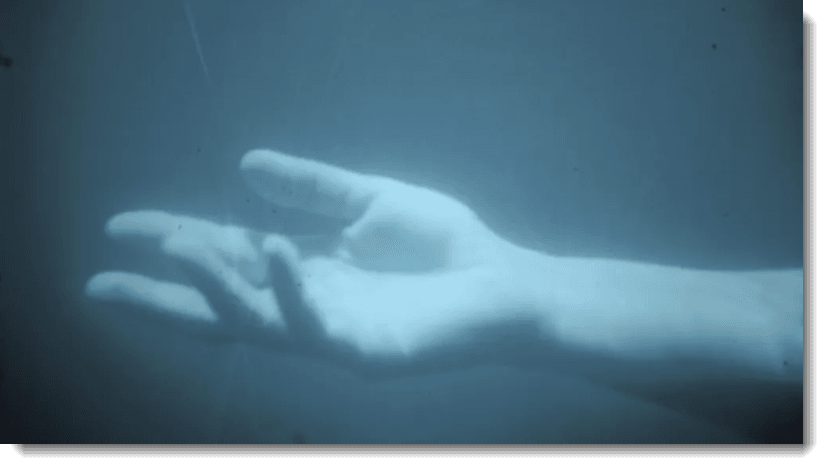In the August 15, 2017 Ask The Headhunter Newsletter, a reader wants to know why I say your local library is a better job hunting tool than the Internet.
 Question
Question
I purchased and read two of your books, How To Work With Headhunters and How Can I Change Careers? You have a great business here. Kudos to you!
I have a question about your coaching regarding “The Library Vacation” in How Can I Change Careers? (pp. 15-22). You advise actually going to libraries to explore job and career possibilities. Given that technology and the Internet have changed significantly since you wrote your book, do you still recommend going to a library versus working on the Internet to explore careers, employers and jobs? Thanks in advance!
Nick’s Reply
Thanks for your kind words and for purchasing my books.
The Library Vacation is a thoughtful, deliberate method for exploring careers, industries, jobs and employers that flies over all the popular, automated, high-speed, mindless Internet surfing that passes for job hunting today.
For those who don’t know anything about The Library Vacation, I’ll quickly summarize. The idea is that changing careers (or employers or jobs) should not be restricted by what job boards, employers and search engines serve up to you. Your field of exploration should be wider and deeper. I think you can get that only at a good library.
We’ll talk more about The Library Vacation in a minute, but first I think it’s important to step back and look at the Internet as a jobs resource from a higher vantage point.
Lose the brainwashing
The dumbest way to try and find a job is on Internet job boards. You might as well stick your hand in the ocean and try to catch a fish. Yes, it’s that dumb. The job boards promise one thing: The jobs are all in there. So are all the fish. Good luck.
Having access to all jobs and employers is meaningless. If it worked, you wouldn’t be reading this. Or fretting. Or getting depressed. Or wondering why all those jobs you keep applying for — jobs you’re perfect for! — keep slipping through your fingers like so many molecules of water.
The Internet is a great source of information about careers, employers and jobs. But it’s mere brainwashing and marketing that have trained you to trust it’s the best way to find the right job for you. It’s not — not by a longshot!
In How Can I Change Careers? there’s a section titled “The Library Vacation” where I offer this message:
“[Your job] search has to be self-directed. In other words, you’ll never find what you’re looking for if you let someone else point you toward what they think you’re looking for.” (p. 15)
The Library Vacation
Here’s the simple idea:
“Take at least three days off and spend them at the library. (A week is better.) Go into the periodical stacks. Forget about job hunting or careers. (This is the vacation part.) Read whatever you feel like. At first, you’ll start with magazines like People, Newsweek, Rolling Stone, foreign newspapers and so on. Then you’ll start checking out various specialty and industry-related periodicals. Just read stuff that attracts you… As you follow your gut, you’ll start to see trends in the sorts of industries and product areas you’re reading about. That will tell you something: This might be your path.” (p. 16)
Does that sound retro? Low-tech? Too cumbersome? Too time-consuming? Well, how’s online job hunting doing for you?
Even with all the resources the Net offers, I still advise people to visit a good library for a Library Vacation. There are several reasons.
Wandering in the library is good
Serendipity is a big — and very important — part of exploring careers and jobs. In the library you’ll find industry and professional publications you’d never search for because you don’t know they exist. Those publications will lead you to industries, products, companies and people you’ll never find online because you didn’t search for them. Your wandering eyes will turn up surprises that only your hunches can exploit.
When we’re looking for a career opportunity, wandering is the point! Algorithms limit us. Libraries set us loose.
Most important, unlike that ocean of job postings, the library will reveal problems and challenges those industries and companies face. And therein lies the opportunity for you to step in and be the solution.
Reference librarians beat Google
Libraries have a precious resource you can’t find online – a real, live reference librarian. I’ll take one reference librarian over 10 search engines or algorithms any day. (See Get thee to a reference librarian.) They’re the real semantic processors! They actually understand you, and they ask good questions no algorithm can, to help you explore in productive directions.
I still pick up the phone and call my local library reference desk for certain kinds of research. Those librarians are really good at what they do. And they ask good questions to help me explore and drill down into an industry, company or professional community more intelligently. Google can’t do that. And job boards don’t even try.
Get up, get out!
There’s one big reason for going to the library that’s lost amidst the “convenience” of the Internet. It’s just good to get out!
For the same reason it’s good to aimlessly scan the stacks of publications in a library, it’s good to sit in a comfy chair and leaf through a series of surprising publications that catch your eye.
The point is not to find what you’re looking for. It’s to find something new that you were not looking for. The same is true when you’re networking among people (rather than information collections).
To understand this better, check out Duncan Watts’ excellent book, Six Degrees: The science of a connected age. Like some of my books, it’s a few years old — but it’s “evergreen” and the ideas will always be incredibly valuable. Watts talks about how the value of a network connection goes up the farther on the periphery of a network you go – simply because the odds are higher that you will find an unknown, unexpected, untried node of high value. When we stay too close to home, we encounter mostly our friends – whether they’re people or publications. Likewise, when we rely on algorithms, we are stuck with only limited search results.
Get motivated!
While the Internet promises results, the library delivers vistas you never considered exploring. The library lets you stumble into unanticipated connections. When your brain exploits these connections, you get a rush of adrenaline at your success — and this in turn motivates you to drive harder toward your new objectives. For my money, the library is the best way to track down the job that you will then stop at nothing to win.
I wouldn’t be in business without the Internet. I love it. But it’s not the only, or even best, tool for certain kinds of research: Highly motivated exploring.
I hope you find something helpful in what I’ve said. By no means do I think you should not use the Net to explore. But get up, get out, go bump into the unexpected at a good library. Lounge in a chair with something good to skim, new possibilities to alight on – and let your mind wander away from the glow of a display.
And tell the reference librarians you meet that I sent you.
Find something that drives you
There’s more to this, of course. The Library Vacation is just the first step. It helps you identify your goal — a new career, employer or job that you become incredibly motivated to win. It also emphasizes the freedom you need to change your mind:
“The only rule is that you must drive your interest until it dies, or until it gets you to your destination.” (p. 22)
What do you do when you find the job you want? How Can I Change Careers? shows you how to walk into the hiring manager’s office and demonstrate, hands down, why you’re the most profitable hire.
Do you use your local library to explore industries, companies, products and jobs? What trade-offs do you see with the Internet? What constraints does each research tool impose? How should this reader use both?
: :


